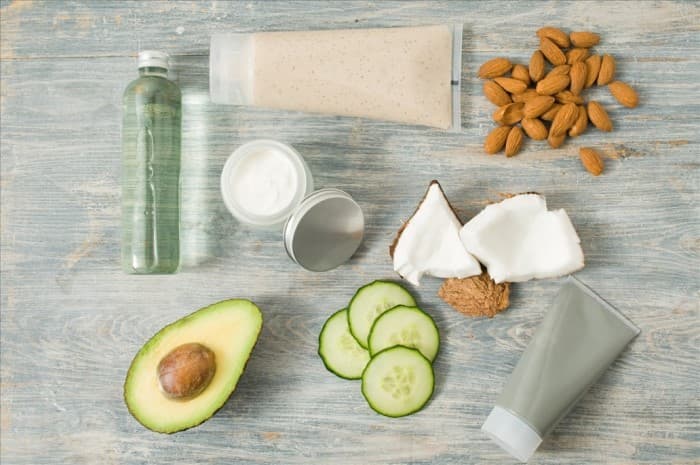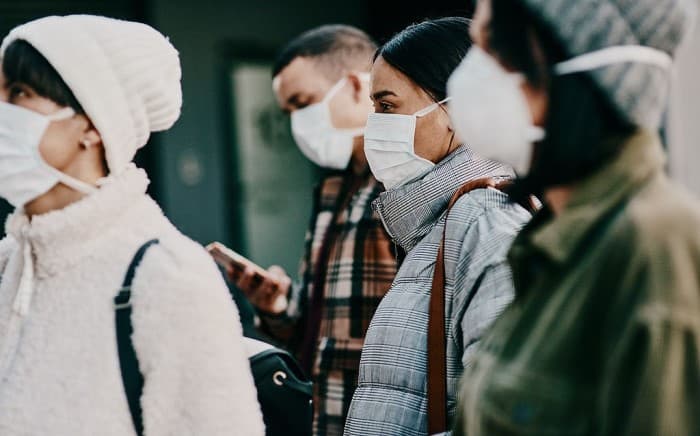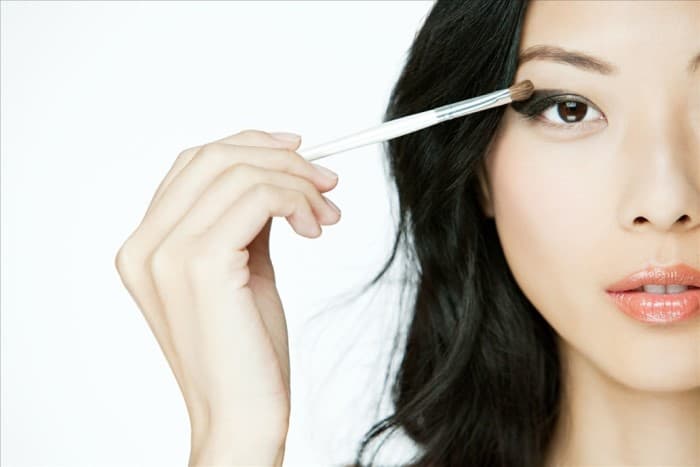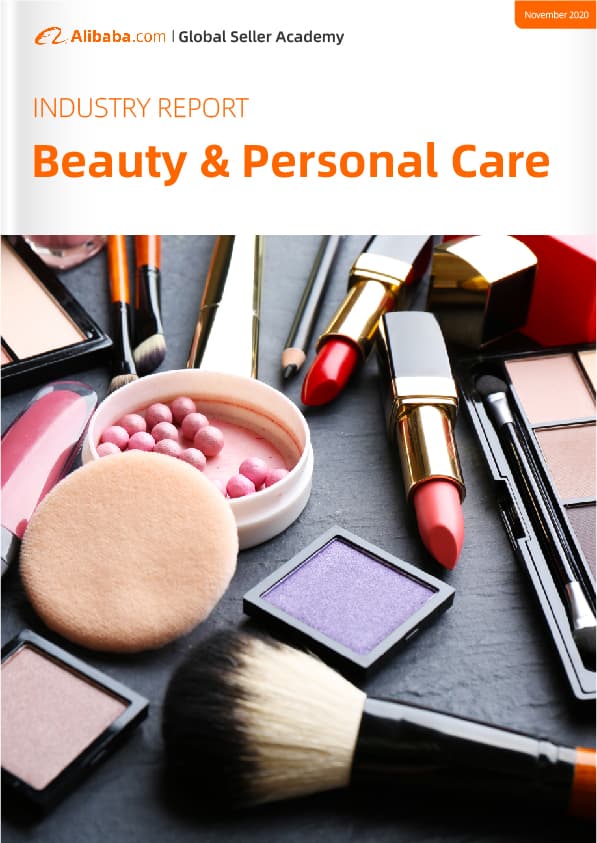Top 10 beauty industry trends for 2021

The beauty industry is ever-evolving as beauty standards shift and ways of life change. In the past year, we have seen some drastic changes to life as we know it due to the global pandemic which has caused some especially unique trends in the beauty industry.
In this post, we’re going to talk about 10 beauty industry trends from the past year and take a look at how these trends could look going forward. We will wrap things up by offering some tips for selling beauty products on Alibaba.com.
To get started, let’s look at some quick stats to get an idea of what’s going on in the beauty industry.
Table of Contents
The beauty industry at a glance
Before we dive in, let’s take a look at a few general statistics that capture the current situation in the beauty industry.
- The beauty industry is expected to grow by an average of 5.2% each year from 2020 to 2023.
- The top beauty markets in the world are China, the United States, Japan, India, and Brazil.
- The annual transaction volume of beauty products on Alibaba.com increased by 100% year-on-year in the 2020 fiscal year.
- The United States and the United Kingdom have the two largest buyers’ markets in the beauty industry.
Top 10 beauty industry trends
The past year has created shifts in the way many people consume, and consumption in the beauty industry has definitely felt that shift. Although makeup sales have decreased over the past year1, the beauty industry is still very well and alive.
Some trends have been pushed by the pandemic itself, but many have come from the lockdowns that were put in place to limit the spread of COVID-19. Some trends have to do with a cultural shift related to social consciousness, and others have been inspired by social media and “influencer” culture.
With that said, let’s take a look at some of the most recent trends in beauty.
1. Skincare is thriving
Skincare has become very popular recently. In fact, facial skincare makes up 19% of the beauty industry as a whole.
Part of this has to do with the desire to get glowing skin without having to wear makeup and the obsession with preventing wrinkles and other signs of aging. Many people consider skincare practices therapeutic, so that has contributed to the popularity, as well.
Products like moisturizers, cleansers, serums, and exfoliants have done exceptionally well. The demand for collagen, vitamin C, and CDB infused skincare products has also grown as these ingredients have become buzzwords in the industry.
2. Natural beauty products are on the rise
People are becoming more conscious of what they put in and on their bodies. This comes from the fact that so many products, in and out of the beauty industry, are pumped with undesirable chemicals and filler ingredients.
These ingredients are less than desirable for both the person using them and the environment. After all, anything that is not absorbed by our bodies goes back into our water systems.
This is pushing people to take a closer look at what sort of products they are using. Many people do not care, but those who do care are looking for clean beauty alternatives even though these options typically come with a higher price tag2.
Plant-based options with sustainable packaging would fall into this category. Some people make it a point to only use products that would be safe to eat.
As a response to this trend, many businesses have tried a marketing tactic called “greenwashing3,” which is when products are labeled as “natural,” “clean,” “green,” or “eco-friendly,” even if they are not. This has been the root of some controversy since brands have taken advantage of consumers that desire options that are truly more natural.

3. DIY beauty and pampering has grown
Since salons are considered “non-essential” businesses, many were closed for several months for the better part of 2020. Many people were forced to do their regular pampering at home.
Do it yourself (DIY) pampering products, including nail kits, body waxing, boxed hair dye, and facial kits became more popular4. Shaving and hair removal products say an annual order volume increase of 97% and nail supplies saw an increase of 175%.
YouTube videos and tutorials related to at-home pampering saw increases in viewership, as well.
Even though many salons have reopened, many people are still not comfortable going out of non-essential things. DIY pampering may stick around for a while longer.
4. eCommerce is becoming more popular
Like many other industries, the beauty industry has seen a major shift in the way that people shop. Since brick and mortar stores shut doors for many months, people relied on online shopping to purchase their favorite products.
Many retailers have taken advantage of this industry shift towards eCommerce5 since running an online beauty store is much more affordable than running a physical storefront. Advances in technology have given beauty retailers the opportunity to improve the online shopping experiences even further.
Augmented reality, virtual reality, and other technology give consumers the ability to “try on” makeup by uploading a photo on their mobile devices. That way they can test different colors and textures to see what they like without having to rely on the in-store samples.
Retailers are also benefiting from eCommerce because it gives them access to powerful data and analytics that help them chart consumer behavior and understand demand trends. Access to these statistics helps them better understand who is buying their products.
5. Moisturizing hand sanitizer
Although hand sanitizer isn’t typically considered a beauty product, beauty companies have taken the initiative to add hand sanitizers to their product lines.
Since alcohol is a major component of effective hand sanitizers, the products are known to leave hands feeling dry and chapped. That’s why moisturizing hand sanitizers created a business opportunity growth of 2520% in 2020.
Some major beauty companies have created formulas that maintain adequate levels of disinfectant while incorporating moisturizing ingredients that leave hands feeling soft and nourished to serve this growing demand.
Kylie Cosmetics offers a glycerin-based hand sanitizer at $7, and FRE Skincare offers an oil-based hand sanitizer at $19. Some luxury brands offer similar products at a higher price point.
6. “Maskne” prevention
Wearing a mask, especially for long periods of time, can cause breakouts, or mask acne (“maskne”). Some beauty brands are selling masks that are designed to prevent “maskne6.” These masks are made from a few different materials that are either breathable or antibacterial.
Maskne-preventing masks will likely be around as long as COVID-19 remains an issue7.
In addition to wearing special masks, skin and beauty experts are urging people with maskne problems to get serious about their cleansing routines by using a mild cleanser and gentle exfoliant relatively often.

7. Mask-friendly makeup
Masks are currently required in many parts of the world, so makeup lovers are forced to pivot to choose mask-friendly makeup options8.
Since masks cover the face from the nose down, this gives eyes, lashes, and brows their time to shine. Products like eyeshadow, brow makeup, eyelashes, concealers, and mascara are coming in handy.
Liquid lipstick also became a fan favorite since it is less likely to smear and smudge than glosses and regular lipsticks are. That way, people can take their masks on and off without worrying about messing up their makeup. Using transfer-free products also helps to keep your masks clean.
8. Scalp care emerges
As we mentioned, many people have become cautious of skincare. This caution has trickled into haircare and scalp care, as well.
Trichology9, which is the study of the scalp, is emerging as people take science-based approaches to scalp care. The idea is to stimulate healthy hair growth, minimize dryness and generally improve the health of the scalp.
Some scalp related beauty products that are emerging include scalp detoxes, moisturizing masks, deep cleansers, serums, and caffeine treatments.
Additionally, there are treatments and therapies that are becoming more common.
9. Inclusivity is on the rise
Although there is such a wide range of skin tones, many major makeup brands have historically catered to a small portion of people with lighter skin. However, inclusivity is on the rise.
A couple of celebrity makeup brands, including Fenty by Rihanna and KKW Beauty by Kim Kardashian, have prioritized inclusivity. This has set the tone for their competitors to do better when it comes to accommodating a wider variety of people.
Inclusivity doesn’t stop at makeup shades. Products are also created to suit different skin types. People with sensitive, oily, dry, and combination skin can all find products to suit their needs.
Aside from creating the products for more types of people, the beauty industry is encouraging participation from models and influencers whose demographics haven’t been well-represented in the past. The beauty industry is also becoming accepting of people who are male-identifying and gender non-conforming.
Since the world we live in is slowly recognizing beauty outside of the restrictive cultural standards, this trend will likely live on for years to come.
10. Beauty subscription boxes
Subscription boxes are a fun trend in the beauty industry that involves sending subscribers a collection of products on a monthly or quarterly basis. There are subscription boxes that lean more towards skincare, and there are others that are more about makeup and glam.
A few of the most popular beauty subscription boxes include IPSY, Allure, BoxyCharm, and Birchbox. Some boxes, like IPSY, send a custom collection of beauty products each month, whereas others, like Allure, send editor’s picks. FabFitFun is also among the most popular subscription boxes, but it blends beauty with lifestyle and wellness.
These boxes range from $10 to $50+ per month and include everything from samples to full-sized products.
Top beauty products going into 2021
Oftentimes, trends in the beauty industry reflect fads and trends related to pop culture. Although this past year had some unusual influences, there are still many makeup and skincare products that will define this era for years to come.
Here are a few of the top products that the beauty industry is bringing into 2021:
- Liquid lipstick and lip gloss
- Liquid blush
- Nude and matte eyeshadows
- Glitter eyeshadows
- Bold nails
- Mink false lashes
- Plant-based false lashes
- Handheld facial exfoliating and cleansing brushes
- Lacefront wig glue
- Edge control products (for hair)
- Argan oil shampoo
- Coffee exfoliant scrubs
This list reflects suggestions from Alibaba.com on what to sell in the new year.

2021 predictions for the beauty industry
It is difficult to make predictions about the beauty industry for the next year since much of the world is still struggling through a pandemic. However, since vaccines are becoming available, it may make it safe for people to go back in public for work, school, and leisure activities.
As restaurants, bars, and other establishments open, it is likely that people will continue to purchase and wear makeup once again. However, DIY self-care products, like wax kits, nail kits, and the like, may see a decline as salons open back up.
There is a possibility that some of the COVID-triggered trends we’ve seen could stick around to some degree. Since many people have formed habits surrounding the beauty trends geared towards personal care, like skincare and scalp care, it is likely that those ones will continue on.
No matter what happens, the beauty industry will most likely continue to see new developments that will create business opportunities for those who are interested.
Tips for selling beauty products on Alibaba.com
Alibaba.com is a wonderful platform for manufacturers, wholesalers, and suppliers in the beauty industry since our site has over 14 million active buyers. The platform is equipped with tools and features that help sellers take their businesses to the next level, whether that means making more sales or tapping into new markets.
However, there are some things that you can do to improve your selling experience on Alibaba.com. Let’s take a look at a few tips for success.
1. Jump on trends
Since the beauty industry is constantly changing, it is wise to stay on top of current trends. If you do not, your business can fall behind. Regularly monitor consumer behavior and keep tabs on your competition.
A good way to jump on trends is by staying in tune with social media. See what is going viral and what influencers are doing. TikTok, Instagram, and Twitter are major platforms where trends spread like wildfire, so watch these channels.
Connect with sellers that do a good job of staying trendy, and do what you can to meet their rapidly evolving demands.
2. Optimize your listings
Once you’ve found good products to sell, you’re going to want to optimize your listings. Alibaba.com has a built-in search engine that generates possible matches for buyers’ search queries.
Optimize your listings with relevant keywords. If you’re selling lipstick, provide more details in the title and description. Is it a liquid or solid lipstick? Is the finish matte, velvet or glossy? Is it smudge-proof?
Do some research on your ideal client to determine what sort of keywords they are searching for. This will give you a better opportunity to reach the audience that you’re targeting.
3. Answer RFQs
Alibaba.com offers a unique tool called “Request for Quotation” (RFQ) that gives buyers the opportunity to post information about an order that they’d like to have filled. Sellers who offer the desired products and have the capability to fill the order come back to the buyer with a quote.
We recommend taking advantage of this feature by responding to requests that you can fulfill. Draft a professional message that clearly states your offer. This will help you connect with more buyers.
4. Complete your profile
Most buyers check out sellers’ profiles to make sure they are legitimate and trustworthy. We recommend filling in as many fields on your profile as possible to give it more dimension. This includes information about your product and your business. This way, buyers have more information to go off of when comparing you to other sellers.
Part of making your profile stand out is having good reviews from past clients. Every time you fill an order with a new client, follow up and ask them to leave a review of their experience.
Final thoughts
Staying on top of the current trends in the beauty industry and understanding how quickly the industry evolves is key to success. Beauty manufacturers, wholesalers, and suppliers need to be quick on their feet so that they don’t miss out on new opportunities.
Although COVID-19 had a lot of influence on different parts of the beauty industry in the past year, it is safe to say that the industry as a whole has done well.
If you are a seller in the industry who is looking to expand or if you’d like to start selling, Alibaba.com offers some great resources and services that can help you achieve your desired success.
To start selling in our marketplace, create an Alibaba.com seller account and upgrade to activate Gold Supplier Membership. What are you waiting for? Get started today!
References:
1. https://www.mckinsey.com/~/media/McKinsey/Industries/Consumer Packaged Goods/Our Insights/How COVID 19 is changing the world of beauty/How-COVID-19-is-changing-the-world-of-beauty-vF.pdf
2. https://www.washingtonpost.com/lifestyle/wellness/clean-beauty-has-taken-over-the-cosmetics-industry-but-thats-about-all-anyone-agrees-on/2020/03/09/2ecfe10e-59b3-11ea-ab68-101ecfec2532_story.html
3. https://www.investopedia.com/terms/g/greenwashing.asp
4. https://www.businessinsider.in/business/news/covid-19-and-the-changing-face-of-the-business-of-beauty-from-sanitized-salons-to-diy-kits-and-acquisitions/articleshow/77972919.cms
5. https://www.yieldify.com/free-guides/beauty-ecommerce-trends/
6. https://www.thecut.com/article/how-to-treat-maskne-mask-acne.html
7. https://poosh.com/face-masks-prevent-maskne/
8. https://www.refinery29.com/en-us/2020/08/9961103/makeup-with-face-mask-tips-covid-19
9. https://www.webmd.com/a-to-z-guides/what-is-a-trichologist#1
Start your borderless business here
Tell us about your business and stay connected.
Keep up with the latest from Alibaba.com?
Subscribe to us, get free e-commerce tips, inspiration, and resources delivered directly to your inbox.
















